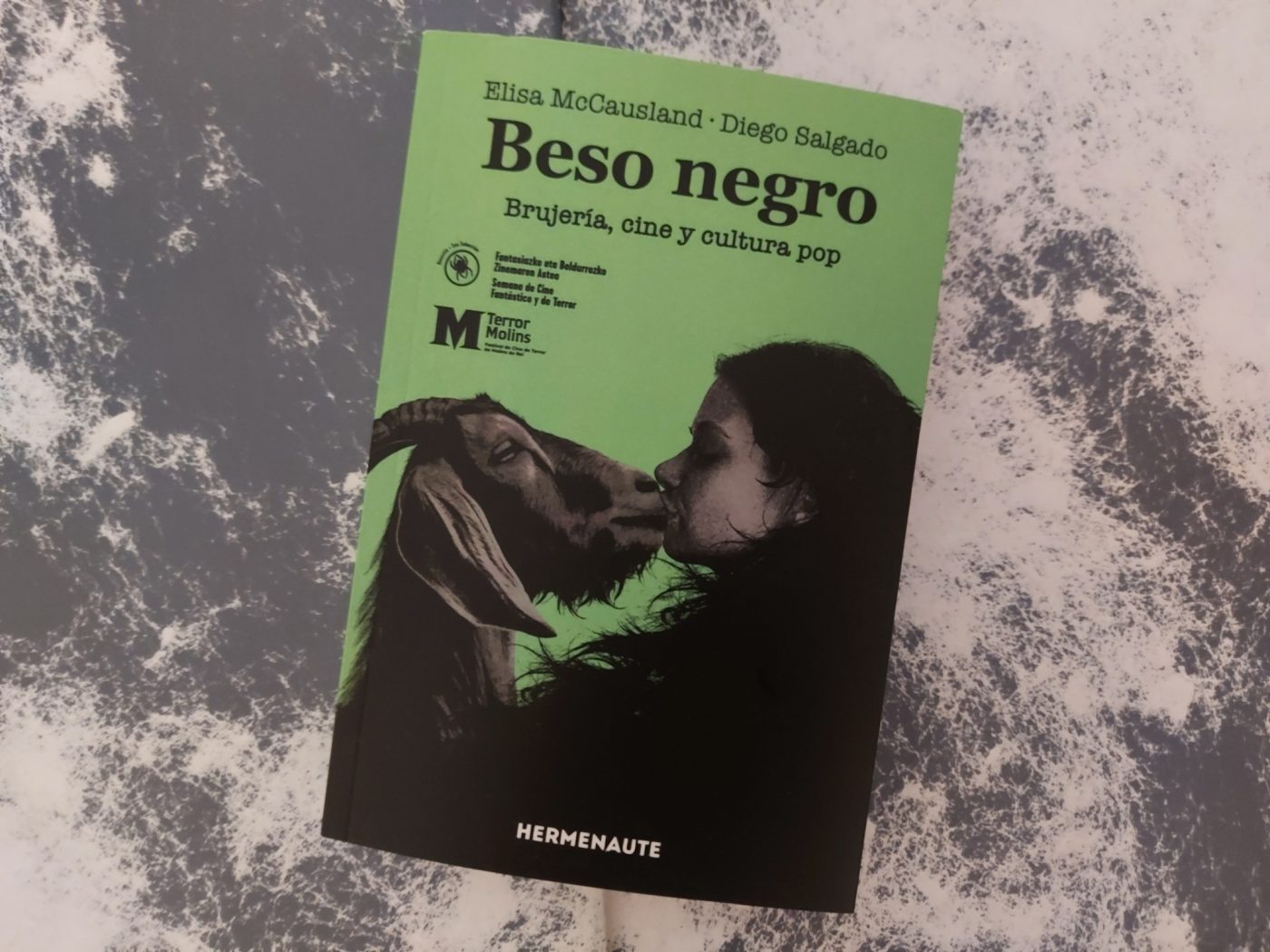Beso negro. Brujería, cine y cultura pop
Elisa McCausland and Diego Salgado
As all lovers of the forbidden arts are well aware, the osculum infame or kissing the Devil’s anus, his other mouth, seals the submission of a human being to the charms of evil. Beso negro: Brujería, cine y cultura pop (Black kiss: Witchcraft, cinema and pop culture) includes that image in its title to shed dark light on a phenomenon that has continued to feature one way or another in traditional culture since the very beginnings of the Age of Reason: witchcraft.
Following an introduction that takes a look back over the impact of the phenomenon on the cultural and artistic sphere of the last two centuries as an expression of the underlying discontent with the values of Modernity, the essay sets about comparing, in two clearly defined sections, the figures of the warlock and the witch, ubiquitous in audiovisual fiction. The warlock and the witch are complementary yet antagonistic figures, if we heed the means and ends they strive to achieve when subverting the prevailing values.
Beso negro Brujería, cine y cultura pop analyses the strategies of both to change reality in a show which, although focused on the cinema, still has time for the small screen, the comic and other artistic and audiovisual expressions where both warlock and witch have struggled to bring about another way of being and existing in the world. From Dion Fortune (1890-1946) and Häxan: Witchcraft Through the Ages (1922) to The Witch (2015) and the TikTok necromancers, this is a journey where everything seems to have been said and where everything is yet to be invoked.
The book will be published by Hermenaute.
Authors: Elisa McCausland and Diego Salgado
Elisa McCausland, journalist, critic and researcher, and Diego Salgado, film critic and cultural promotor, have been reflecting for more than fifteen years on the meanings, contexts and potential of traditional culture and its expressions, with particular emphasis on the cinema and comics. Today they share a microphone on Trincheras de la Cultura Pop, joining hands to write audiovisual critiques and studies in the specialised publications Dirigido Por, Rockdelux, SoFilm and Solaris.
The two are promoters and collaborators of the ECC-UAH Chair on Comic Research and Culture and have written the essays Supernovas: Una historia feminista de la ciencia ficción audiovisual (errata naturae, 2019) and Sueños y fábulas: Historia de Vertigo (ECC, 2022). Solo, Elisa is also the author of Wonder Woman: El feminismo como superpoder (2019). Solo, Elisa is also the author of Wonder Woman: El feminismo como superpoder (2019).

